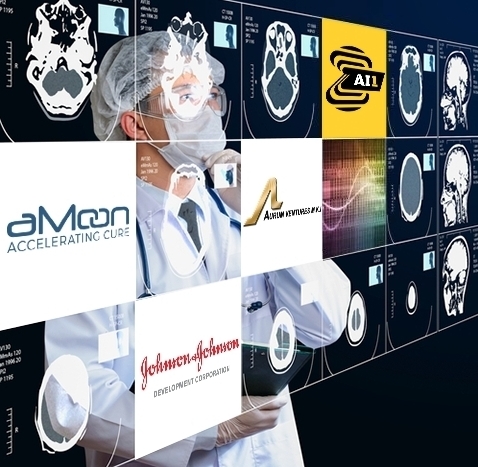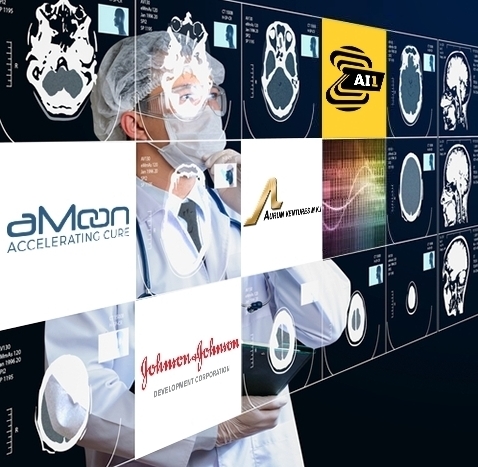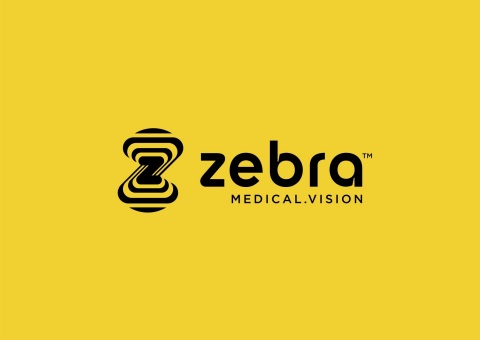SHEFAYIM, Israel--(BUSINESS WIRE)--Zebra Medical Vision (https://zebra-med.com/) and Clalit Health Services announce the completion of two groundbreaking research projects that allow early identification of patients with bone and cardiovascular disease. Using existing CT data, Zebra-Med’s algorithms allow Clalit to identify patients at risk of Osteoporotic fractures and Cardiac events. Both research projects were independently validated by the Clalit Research Institute and will be presented for the first time during RSNA. Clalit owns and operates 1,500 primary care clinics and 14 hospitals, including 30% of Israel’s hospital acute care beds, treating over 4 million patients.
Research #1: “Automatic evaluation of CT scans for prediction of Osteoporotic Fractures”
In one of the largest Osteoporosis experiments completed to date, a retrospective cohort of 48,227 individuals with Abdominal CT studies, ages 50-90, was studied over five years from the point of CT imaging to assess risk factors for the incidence of major and hip-specific osteoporotic fractures. The results showed that a combination of automatic Zebra-Med algorithms achieved equivalent risk-stratification compared with the contemporary FRAX scoring system. In addition, the research showed that the addition of Zebra-Med’s risk score to FRAX achieved results superior to those of FRAX alone.
Potential Applications: If applied routinely to all CT studies of chest or abdomen, this would immediately stratify risks of osteoporotic fractures for all individuals over age 50. This would lead to secondary work up and possible prophylactic treatment. Currently, fewer than 20% of those at risk undergo routine screening but over 66% undergo routine CT studies, illustrating the dramatic potential to increase awareness and prophylactic treatment in this growing population. Osteoporosis fractures cost $18B per year to the US healthcare system and $3B to the UK NHS.
Time and Location of Oral presentation at RSNA: Wednesday, November 28, 10:30AM-12:00PM, room S104A.
Research #2: “Incidental CT improves Heart disease prediction”
In this research, a five year retrospective cohort study of 14,135 patients with non-gated, unenhanced Chest CT was used to examine the cardiovascular predictive power of Zebra-Med’s automatic coronary calcium scoring (CCS) algorithm. Prediction performance results were compared between the American Heart Association (AHA) 2013 predictive model (base model) and the same model with the Zebra-Med’s CCS inserted as an additional predictor (augmented model). The addition of Zebra-Med’s CCS improved sensitivity and specificity of the contemporary gold-standard AHA model, resulting in a net 4.5% categorical risk-reclassification improvement. The results indicate that by including a coronary calcium score derived by analyzing non-gated CT scans with Zebra-Med’s algorithms, significant improvements in risk classification are achieved.
Potential Applications: According to the American Heart Association, in 2016, CVD cost America $555 billion. By 2035, the cost will skyrocket to $1.1 trillion and by 2035, nearly half of the U.S. population will have some form of cardiovascular disease. Therefore, the relevance of this research finding pertains to all studies which are performed on a routine basis involving the chest CT whereby individuals and clinicians become aware of the risk stratification category for coronary vascular events in the next 10 years. This insight may lead to more tailored and preventative therapy.
Time of and Location Oral presentation at RSNA: Tuesday, November 27, 10:30AM-12:00PM, room S104B.
“We are pleased with the results of these two groundbreaking research projects and are looking forward to getting them into practice,” said Prof. Ran Balicer, the head of Clalit’s Research Institute. “While there is an increasing number of AI applications in imaging, aiming to mimic and automate human radiologist' reading, there is larger untapped potential in these imaging studies – one can use AI to extract predictive insights unavailable to date, that support high-impact population health interventions to tackle chronic diseases."
“As more nations and health providers move toward value-based healthcare, we are encouraged by these two groundbreaking research projects that show the power of AI and retrospective analysis of existing scans,” noted Eyal Gura, CEO and Co-Founder at Zebra Medical Vision. “The fact that few different AI algorithms from our large portfolio were used for these two important population-health projects, emphasizes the need for a broad AI solution that can be installed once and integrate smoothly into the health system.”
To see more of Zebra-Med’s solutions and learn about actual use cases for your healthcare system, come to visit the Zebra-Med’s booth at RSNA: Booth # 7361 North.
Check out our blog here.
About Clalit’s Research Institute:
In 2010, Clalit Health Services, Israel’s largest integrated provider-payer health system established the Clalit Research Institute. The Clalit Research Institute’s mission is to turn data into decision-making insights that can be translated into policies for transforming healthcare delivery and clinical practice. For more than one hundred years, Clalit Health Services has been Israel’s leading and largest healthcare organization. Today it serves as a non-profit integrated care organization for over four million patients, which is more than half of the country’s population. With universal healthcare coverage in Israel, most Clalit members remain covered by the organization for their entire lives (>95% five year retention). Clalit owns and operates 1,500 primary care clinics and 14 hospitals, including 30% of Israel’s hospital acute care beds, and employs nearly 35,000 doctors, nurses, pharmacists, paramedics, technicians, and administrators.
Learn more about Clalit Health Services. Clalit has also established an integrated electronic health records (EHR) database, comprised of comprehensive clinical and administrative data since 2000, and some records dating back to the early 1990s. The Clalit Research Institute accesses the database to conduct research that addresses population-level health issues that have an impact on, or relevance for, the members receiving care in Clalit.
About Zebra Medical Vision:
Zebra Medical Vision uses deep learning to create and provide next generation products and services to the healthcare industry. Its Imaging Analytics Platform gives healthcare institutions tools to potentially identify patients at risk of disease, allowing them to improve patient care. Headquartered in Kibbutz Shefayim Israel, the Company was founded in 2014 by Co-Founders Eyal Toledano, Eyal Gura, and Elad Benjamin and funded by Khosla Ventures, Marc Benioff, Intermountain Investment Fund, OurCrowd’, Qure, Aurum, Nvidia and Dolby Ventures. For more information visit https://www.zebra-med.com/.





